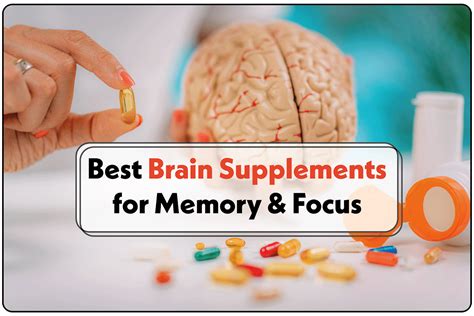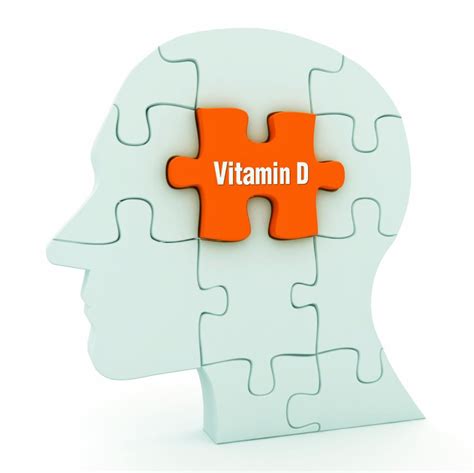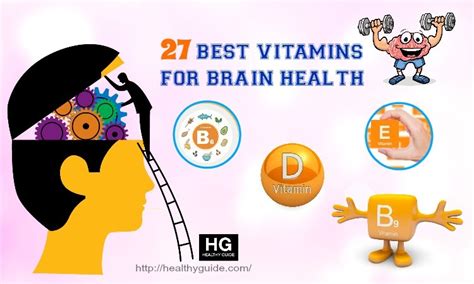Intro
Boost brain function with essential vitamins for brain health, including B12, D, and omega-3, to support cognitive function, memory, and mental clarity, reducing risk of dementia and neurological disorders.
The human brain is a complex and fascinating organ, responsible for controlling every aspect of our lives, from movement and sensation to emotion and cognition. As we age, our brain health can begin to decline, leading to problems with memory, concentration, and mood. While a healthy diet and regular exercise are essential for maintaining brain health, certain vitamins and nutrients can also play a crucial role. In this article, we will explore the importance of vitamins for brain health, and discuss the best ways to incorporate them into your diet.
Maintaining good brain health is essential for overall well-being, and vitamins can help to support this process. Vitamins are essential nutrients that the body cannot produce on its own, and they must be obtained through the diet or supplements. Certain vitamins, such as vitamin D, vitamin B6, and vitamin B12, have been shown to have a positive impact on brain health, and can help to reduce the risk of age-related cognitive decline. Additionally, vitamins can help to support the health of the nervous system, which is responsible for transmitting signals between the brain and the rest of the body.
The importance of vitamins for brain health cannot be overstated. Research has shown that vitamin deficiencies can have a significant impact on cognitive function, and can even increase the risk of neurodegenerative diseases such as Alzheimer's and Parkinson's. Furthermore, vitamins can help to support the growth and development of new neurons, which is essential for learning and memory. By incorporating vitamins into your diet, you can help to support brain health, and reduce the risk of age-related cognitive decline.
Vitamins For Brain Health

There are several vitamins that are essential for brain health, including vitamin D, vitamin B6, and vitamin B12. These vitamins can help to support the health of the nervous system, and can reduce the risk of age-related cognitive decline. Vitamin D, for example, has been shown to have a positive impact on cognitive function, and can help to reduce the risk of dementia. Vitamin B6 and vitamin B12, on the other hand, are essential for the synthesis of neurotransmitters, which are chemicals that transmit signals between neurons.
Benefits Of Vitamins For Brain Health
The benefits of vitamins for brain health are numerous. Vitamins can help to support the health of the nervous system, and can reduce the risk of age-related cognitive decline. Additionally, vitamins can help to support the growth and development of new neurons, which is essential for learning and memory. Some of the key benefits of vitamins for brain health include: * Improved cognitive function * Reduced risk of age-related cognitive decline * Support for the health of the nervous system * Improved mood and reduced risk of depression * Support for the growth and development of new neuronsVitamin D And Brain Health

Vitamin D is an essential nutrient that plays a crucial role in maintaining good brain health. Research has shown that vitamin D deficiency can have a significant impact on cognitive function, and can even increase the risk of neurodegenerative diseases such as Alzheimer's and Parkinson's. Vitamin D can help to support the health of the nervous system, and can reduce the risk of age-related cognitive decline. Additionally, vitamin D can help to support the growth and development of new neurons, which is essential for learning and memory.
Food Sources Of Vitamin D
Vitamin D can be obtained through a variety of food sources, including: * Fatty fish such as salmon and mackerel * Fortified dairy products such as milk and cheese * Mushrooms * Egg yolks * Fortified cerealsVitamin B6 And Brain Health

Vitamin B6 is an essential nutrient that plays a crucial role in maintaining good brain health. Vitamin B6 is necessary for the synthesis of neurotransmitters, which are chemicals that transmit signals between neurons. Vitamin B6 deficiency can have a significant impact on cognitive function, and can even increase the risk of neurodegenerative diseases such as Alzheimer's and Parkinson's.
Food Sources Of Vitamin B6
Vitamin B6 can be obtained through a variety of food sources, including: * Meat such as chicken and beef * Fish such as salmon and tuna * Whole grains such as brown rice and quinoa * Legumes such as beans and lentils * Nuts and seeds such as sunflower seeds and pumpkin seedsVitamin B12 And Brain Health

Vitamin B12 is an essential nutrient that plays a crucial role in maintaining good brain health. Vitamin B12 is necessary for the synthesis of neurotransmitters, which are chemicals that transmit signals between neurons. Vitamin B12 deficiency can have a significant impact on cognitive function, and can even increase the risk of neurodegenerative diseases such as Alzheimer's and Parkinson's.
Food Sources Of Vitamin B12
Vitamin B12 can be obtained through a variety of food sources, including: * Meat such as beef and pork * Fish such as salmon and tuna * Poultry such as chicken and turkey * Dairy products such as milk and cheese * Fortified cerealsOther Vitamins For Brain Health

In addition to vitamin D, vitamin B6, and vitamin B12, there are several other vitamins that are essential for brain health. These include:
- Vitamin E: antioxidant properties help protect against cell damage
- Vitamin C: antioxidant properties help protect against cell damage
- Vitamin A: essential for the health of the nervous system
- Vitamin K: essential for the health of the nervous system
Supplements For Brain Health
While it is always best to obtain vitamins and nutrients through a healthy diet, supplements can be a useful addition to your routine. When choosing supplements, it is essential to select high-quality products from reputable manufacturers. Some popular supplements for brain health include: * Omega-3 fatty acids: support the health of the nervous system * Ginkgo biloba: improves blood flow to the brain * Bacopa monnieri: improves memory and cognitive function * Acetyl-L-carnitine: supports the health of the nervous systemWhat are the best vitamins for brain health?
+The best vitamins for brain health include vitamin D, vitamin B6, and vitamin B12. These vitamins can help to support the health of the nervous system, and can reduce the risk of age-related cognitive decline.
Can vitamins help to improve cognitive function?
+Yes, vitamins can help to improve cognitive function. Vitamins such as vitamin D, vitamin B6, and vitamin B12 are essential for the synthesis of neurotransmitters, which are chemicals that transmit signals between neurons.
What are the symptoms of vitamin deficiency?
+The symptoms of vitamin deficiency can vary depending on the specific vitamin. Common symptoms include fatigue, weakness, and impaired cognitive function. If you are experiencing any of these symptoms, it is essential to speak with a healthcare professional.
In conclusion, vitamins play a crucial role in maintaining good brain health. By incorporating vitamins such as vitamin D, vitamin B6, and vitamin B12 into your diet, you can help to support the health of the nervous system, and reduce the risk of age-related cognitive decline. Remember to always choose high-quality supplements from reputable manufacturers, and to speak with a healthcare professional before adding any new supplements to your routine. We invite you to share your thoughts and experiences with vitamins for brain health in the comments below, and to share this article with anyone who may be interested in learning more about the importance of vitamins for brain health.
